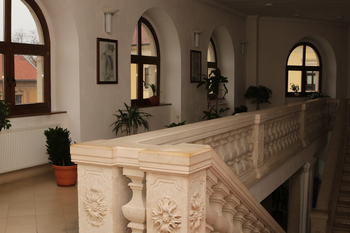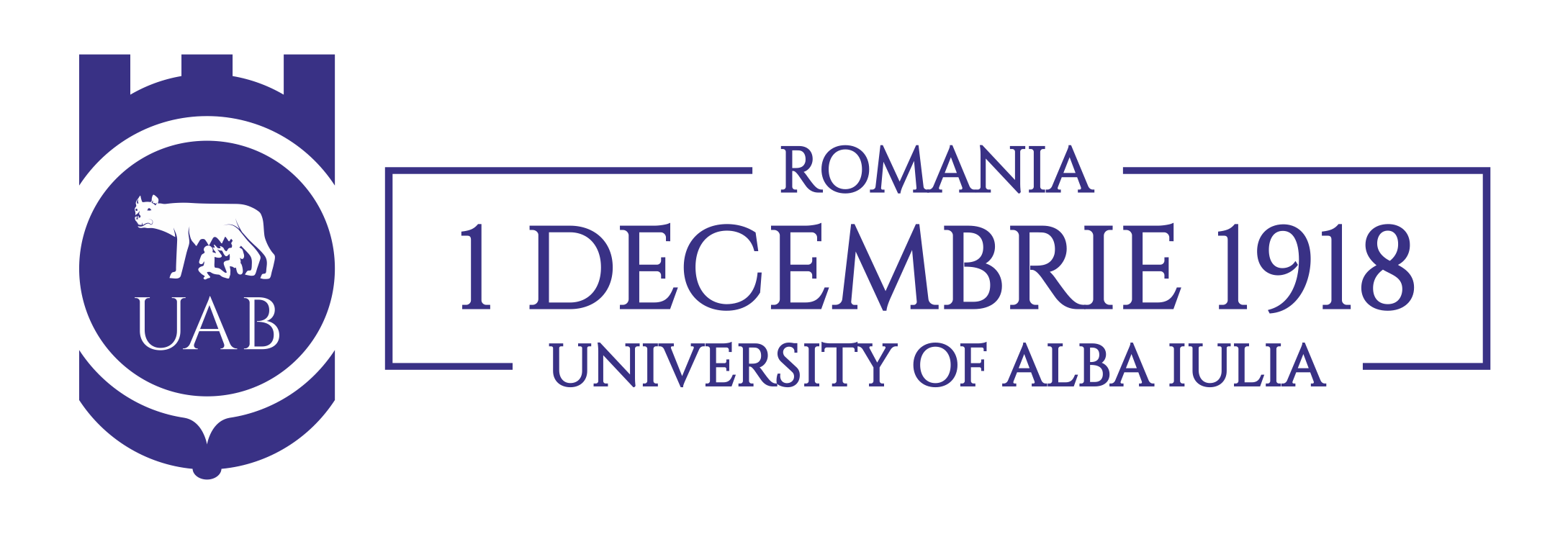History
Accredited Program, duration of studies 3 years / 180 credits
The study of history falls into the fundamental field of humanities. Knowledge, understanding of the basic concepts, theories and methods of the field of History and of the area of specialization will be accessible to those who will opt for this specialization under license.
Within the Faculty of History and Philology, scientific research in the field of history is carried out by teams that bring together the teaching staff of the departments of the Faculty, masters and doctoral students, such as: "Iuliu Paul" Institute of Systemic Archeology (accredited research structure) and "Iuliu Maniu" Center of Excellence for Historical and Political Research (accredited research structure). In undergraduate studies, full-time courses, lasting 3 years (6 semesters), in addition to the specialized disciplines, our students attend module 1 of psycho-pedagogical training, so that, at the end of their studies, in addition to the Bachelor's Degree they also receive a Certificate of Entry into the teaching profession, thus securing a job in the pre-university education system.

Romanian language and literature - English language and literature
Accredited Program, duration of studies 3 years / 180 credits
Authorized to operate provisionally by Romanian Government Decision no. 294, of 16.06.1997, accredited by the Decision of the Romanian Government no. 676, of 28.06.2007 and evaluated institutionally in March 2015, the bachelor's degree program Romanian language and literature - English language and literature currently operates in accordance with the Decision of the Romanian Government no. 580, of 09.07.2014, regarding the approval of the Nomenclature of the fields, of the structures of the higher education institutions and of Bachelor study specializations / programs accredited or authorized to function.
During the BACHELOR studies, full-time courses, lasting 3 years (6 semesters), in addition to the specialized disciplines, our students attend module 1 of psycho-pedagogical training, so that, at the end of their studies, in addition to the Bachelor's Degree they also receive a Certificate of Entry into the teaching profession, thus securing a job in the pre-university education system.
The mission of the study program ROMANIAN LANGUAGE AND LITERATURE - ENGLISH LANGUAGE AND LITERATURE is to train specialists in the field of philology whose professional skills, attitudes and values meet the requirements of the current socio-economic and cultural environment. In order to fulfill this mission, the program applies through the disciplines it proposes, aspects of theoretical research in the area of language / communication studies and cultural studies to current issues and realities.
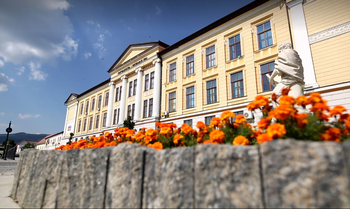
Translation and interpretation (English-French)
Accredited Program, duration of studies 3 years / 180 credits
The program started out of a desire to address the field of modern applied languages. Thus, the Faculty of History and Philology offers the opportunity to assert itself in the field of philology of those students who are passionate about foreign languages and who do not necessarily want to pursue a teaching career. The program has an applicative character and offers many practical courses in English and French. Upon graduation, students have language and communication skills (level B2 / C1) for English and French, according to the language reference levels specified in the Common European Framework. Furthermore, students have the opportunity to study German as an optional subject (for a period of three years) and to acquire language skills (level A2 / B1) for this language.
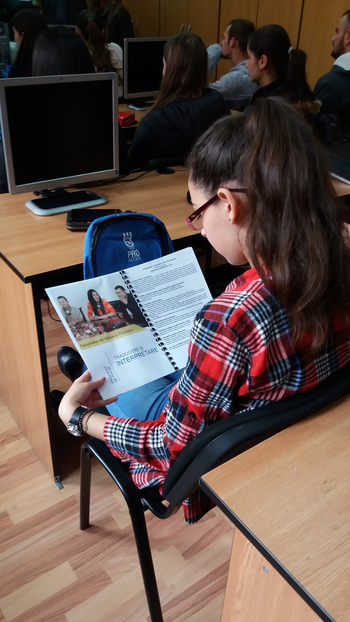
Translation and interpretation (German-English)
The new study program TRANSLATION AND INTERPRETATION (GERMAN-ENGLISH) is organized in response to the demands of the labor market and its mission is to train specialists in the field of Modern Applied Languages (translators with higher education, interpreters and translators), whose professional skills, attitudes and values to meet the requirements of the current socio-economic and cultural environment. The training of specialists in communication and intercultural relations is considered, thus responding to the need for qualified staff both in international companies in the area and in public institutions in the process of globalization. By default, the program aims at several professional objectives specific to the field: effective communication, in at least two modern languages, in a wide framework of professional and cultural contexts, by using registers and specific linguistic variants in speech and writing (Level of competence B2- C1 in both languages - according to the European Framework of Reference); adequate application of written and oral translation and mediation techniques, in areas of wide and semi-specialized interest; adequate application of ICT (computer programs, electronic dictionaries, databases, document archiving techniques, etc.) for documentation, identification and storage of information, word processing and proofreading; linguistic and cultural negotiation and mediation, professional and institutional communication, analysis and evaluation of effective communication.
The organization of the new study program Translation and Interpretation (German-English) is part of the overall strategy of the University, aiming to strengthen the curricula of the current structure, in parallel with their continuous adaptation to the needs of employers, interdisciplinary and connected to current demand and predictable changes in the labor market.
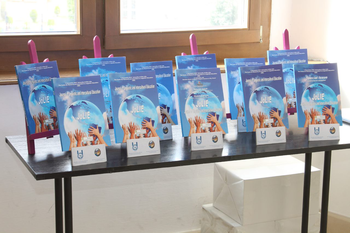
Preparatory Year Romanian Language
Aims and scope
The one-year, full-time academic programme in Romanian as a Foreign Language is addressed to foreign citizens who wish to gain entry onto a Romanian degree programme (at bachelor, master, Ph.D. level), as well as post-graduate and advanced training programmes in various fields. The programme also meets the needs of expatriates who work in Romania and who want to acquire a formal language certification.
The course aims at developing international students" skills in reading, writing, listening and speaking in Romanian for academic purposes. By the end of the course, students will have reached level B2 of the Common European Framework.
Besides the 22 contact hours per week, the programme also includes extracurricular activities to ensure that international students understand Romanian academic life and culture. Various social events, excursions, outings and documentary visits to other cities and tourist attractions are organised regularly to ensure social, linguistic and cultural integration.
Teaching and assessment
This course is taught by a team of experienced scholars and uses varied teaching methods, including lectures, seminars, workshops, and one-to-one tutorials. Students normally have twenty hours of scheduled contact time per week. In addition, staff are available each week for one-to-one tutorials.
Assessment consists of a combination of methods, ranging from assessed coursework, including essays, assignments, creative writing and other tasks; progress tests; oral examinations, including viva voce, individual and group presentations and seminars; individual research assignments, including library projects.
Certification
Students who successfully complete the course and pass the final examination will be awarded a CERTIFICATE OF PROFICIENCY IN ROMANIAN LANGUAGE - B2 LEVEL. The programme is approved by the Romanian Ministry of Education and Scientific Research; therefore certificates are valid across the European Union.
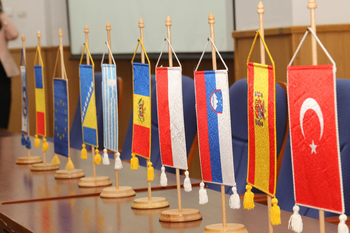
Primary and Preschool Teacher Education
Accredited Program, duration of studies- 3 years / 180 credits
Qualifications:
1. Primary school teacher
2.Teacher in Preschool education
Professional skills:
- Designing training or educational programs for primary and preschool education;
- Carrying out the activities specific to the instructive-educational process in primary and preschool education;
- Evaluating the learning processes, the results and the progress registered by the preschoolers / young school children;
- The managerial approach of the group of preschoolers / young schoolchildren, of the educational process and of the learning / social integration activities specific to the age of the target group;
- Counseling, guidance and psycho-pedagogical assistance of various categories of people / educational groups (preschoolers / small schoolchildren / students, families, teachers, employees, etc.);
- Continuous self-assessment and improvement of professional practices and career development;
- Use of methods of scientific research and data processing in the field of education;
- Applying the characteristics of student-centered education in the design, implementation and evaluation of the school curriculum;
Transversal skills:
- Application of principles and rules based on explicit value options;
- Effective cooperation in professional, interdisciplinary work teams, specific to the development of projects and programs in the field of education sciences;
- Use of effective lifelong learning methods and techniques for continuous training and professional development;
- Promoting the values associated with the achievement of quality education, in accordance with the internal educational policies and in accordance with those developed and popularized at European level, based on the knowledge of the specificity of the European educational field and of interculturality.
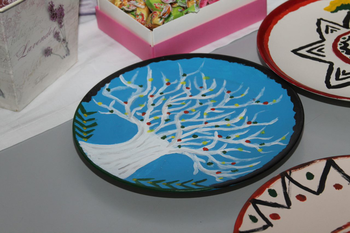
Primary and Preschool Teacher Education - ID Alba
Accredited Program, duration of studies- 3 years / 180 credits
Qualifications:
1. Primary school teacher
2.Teacher in Preschool education
Professional skills:
- Designing training or educational programs for primary and preschool education;
- Carrying out the activities specific to the instructive-educational process in primary and preschool education;
- Evaluating the learning processes, the results and the progress registered by the preschoolers / young school children;
- The managerial approach of the group of preschoolers / young schoolchildren, of the educational process and of the learning / social integration activities specific to the age of the target group;
- Counseling, guidance and psycho-pedagogical assistance of various categories of people / educational groups (preschoolers / small schoolchildren / students, families, teachers, employees, etc.);
- Continuous self-assessment and improvement of professional practices and career development;
- Use of methods of scientific research and data processing in the field of education;
- Applying the characteristics of student-centered education in the design, implementation and evaluation of the school curriculum;
Transversal skills:
- Application of principles and rules based on explicit value options;
- Effective cooperation in professional, interdisciplinary work teams, specific to the development of projects and programs in the field of education sciences;
- Use of effective lifelong learning methods and techniques for continuous training and professional development;
- Promoting the values associated with the achievement of quality education, in accordance with the internal educational policies and in accordance with those developed and popularized at European level, based on the knowledge of the specificity of the European educational field and of interculturality.
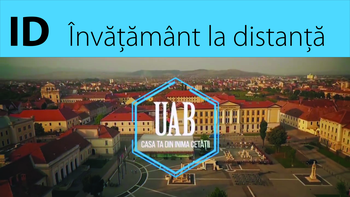
Primary and Preschool Teacher Education - ID Deva
Accredited Program, duration of studies- 3 years / 180 credits
Qualifications:
1. Primary school teacher
2.Teacher in Preschool education
Professional skills:
- Designing training or educational programs for primary and preschool education;
- Carrying out the activities specific to the instructive-educational process in primary and preschool education;
- Evaluating the learning processes, the results and the progress registered by the preschoolers / young school children;
- The managerial approach of the group of preschoolers / young schoolchildren, of the educational process and of the learning / social integration activities specific to the age of the target group;
- Counseling, guidance and psycho-pedagogical assistance of various categories of people / educational groups (preschoolers / small schoolchildren / students, families, teachers, employees, etc.);
- Continuous self-assessment and improvement of professional practices and career development;
- Use of methods of scientific research and data processing in the field of education;
- Applying the characteristics of student-centered education in the design, implementation and evaluation of the school curriculum;
Transversal skills:
- Application of principles and rules based on explicit value options;
- Effective cooperation in professional, interdisciplinary work teams, specific to the development of projects and programs in the field of education sciences;
- Use of effective lifelong learning methods and techniques for continuous training and professional development;
- Promoting the values associated with the achievement of quality education, in accordance with the internal educational policies and in accordance with those developed and popularized at European level, based on the knowledge of the specificity of the European educational field and of interculturality.
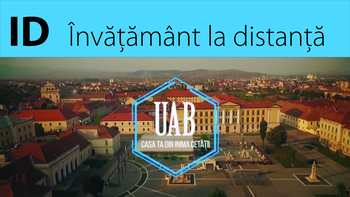
Archaeology
Duration of studies
3 years
Brief presentation
The Bachelor's degree program in Archaeology at the "1 Decembrie 1918" University of Alba Iulia is offered by the Faculty of History, Letters and Sciences of Education. This program lasts 3 years (6 semesters) and is conducted in a full-time mode. Its mission is to train specialists in the field of archaeology, capable of carrying out research and conservation activities of the archaeological heritage.
Qualifications and professions upon graduation
Graduates of the program obtain a Bachelor's degree in Archaeology, which allows them access to various professions according to the Romanian Classification of Occupations (COR), such as: Archaeologist (COR 263206); Historian (COR 263302); Local Promoter (COR 263220).
Main subjects studied
Introduction to universal ancient history; Introduction to the ancient history of Romania; Prehistory; Introduction to archaeology; Practical course in archaeology (I and II); Social and funerary archaeology; Roman provincial archaeology; Archaeology of the Migration Period and the Middle Ages; Paleobotany; Archaeology of raw material sources in pre- and protohistory; Archaeology of architecture; Archaeology of food; Modern methods and techniques of digital documentation in archaeology; Archaeological topography; Specialized practice.
Aspects regarding professional practice
The program places a strong emphasis on practical training for students. They participate in specialized internships at archaeological sites, collaborating with institutions such as museums and research institutes. Students also have access to laboratories equipped with modern equipment for the analysis of artifacts.
Possibilities for further studies (master's degree, doctorate)
After completing their bachelor's degree, graduates can opt for master's programs in related fields, such as: Research, conservation and valorization of historical heritage; Interdisciplinary archaeological research; Archaeology and classical studies. The "1 Decembrie 1918" University of Alba Iulia offers master's programs in the field of archaeology, thus allowing the continuation of studies at the same institution.
Employment opportunities
Graduates of the Archaeology program have employment opportunities in various institutions and organizations, such as: Public or private museums and collections; Archaeological research institutions; Heritage protection and conservation organizations; Local and central public administrations, in culture and heritage departments; Private companies involved in construction and development projects, which require archaeological impact studies. Also, the skills acquired allow graduates to participate in international research projects or to pursue academic careers by continuing their studies at the doctoral level.
